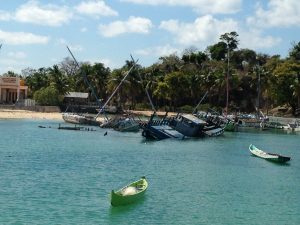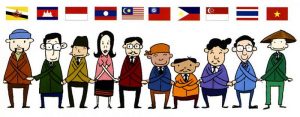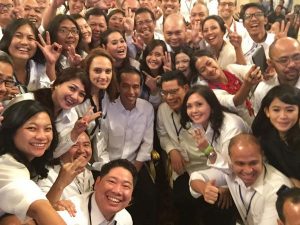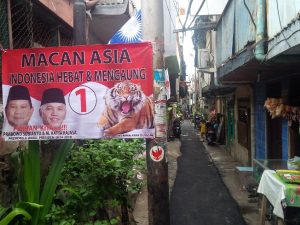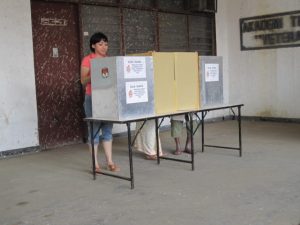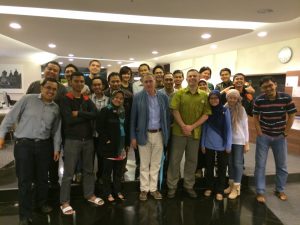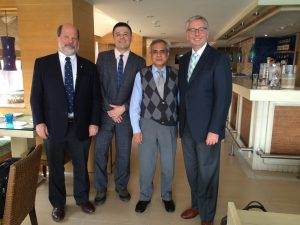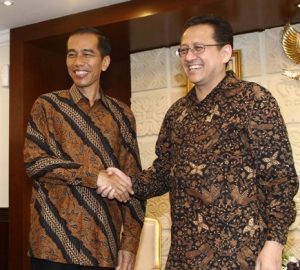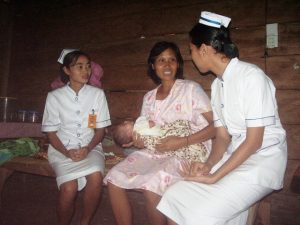A Tough Choice: the Criminalization of Indonesian Fishermen
Memo #387 By: Antje Missbach – antje.missbach [at] monash.edu The tough choice between illegal fishing and transporting asylum seekers Many Indonesian fishermen have suffered the consequences of breaking Australian law in recent years as they have tried to make a meagre living from traditional work. Because fishing in increasingly overfished seas provides inadequate income, many have tried […]
Will the ASEAN Economic Community (AEC) transform Southeast Asian economies in 2015?
Memo #322 By Kai Ostwald – kai.ostwald [at] ubc.ca and Krislert Samphantharak – krislert [at] ucsd.edu December 31, 2015 is the launch date of the ASEAN Economic Community (AEC), possibly the most ambitious undertaking to date of the ten-member Association of Southeast Asian Nations (ASEAN). Envisioned as the culmination of decades-old economic integration efforts to […]
Restoring Indonesia’s Direct Regional Elections: Stability in a Divided Society
Memo #317 Indonesian President Pak Joko Widodo must fight to reinstate direct regional elections to maintain social stability. By Matthew J. Bock – m.bock [at] alumni.ubc.ca and Geoffrey Macdonald – gpmacdonald [at] gmail.com Joko Widodo, referred to as Jokowi, was inaugurated as Indonesia’s seventh president on October 20, 2014. President Jokowi represents a new era of […]
The Perilous Start and Uncertain Future of the Jokowi Era in Indonesia
Memo #311 Editor’s Note: On Friday, October 10, 2014, UBC’s Institute of Asian Research hosted a conference examining the theme, “The Jokowi Era: A New Age for Indonesia?” In advance of this gathering, one of its participants, Dr. Kai Ostwald, provided us his take on what the election of “Jokowi” signified for the world’s third largest democracy. By Kai Ostwald […]
Who Will Indonesia’s “Homeless” Voters Support?
Memo #282 By Nathan Allen – n.allen [at] alumni.ubc.ca Indonesian voters will face significantly fewer choices in the upcoming 2014 legislative election. Where 38 parties competed in 2009, only 12 will appear on the ballot in 2014. For 16% of the electorate, their preferred party in 2009 will no longer be an option. To put […]
The Paradox of Women Leaders in Asian Democracies
Memo #277 By Timothy S. Rich – timothy.rich [at] wku.edu Political life in Asian countries is often characterized as a man’s world, especially compared to its Western counterparts. Yet we have also seen increasing political leadership opportunities for women in the region. Since 2000 alone, women have been elected prime minister in Bangladesh and Thailand, […]
Voices from Indonesia’s Rising Policy Elites: a Confident, Flexible, and Creative Indonesia
Memo #275 By Yves Tiberghien – yves.tiberghien [at] ubc.ca Asia is in the midst of a great uplift, but also great social change and geopolitical transformation. In the midst of China’s rise, China-Japan tensions, India’s new voice, and the US pivot, how are Indonesians thinking and planning? Indonesia is only slowly waking up to its […]
At the Frontier of the Middle Income Trap: Remarkable Parallels between India’s and Indonesia’s Elections
Memo #274 By Yves Tiberghien – yves.tiberghien [at] ubc.ca India and Indonesia are both facing crucial elections this year: May for India and July for Indonesia (April for parliament). Although contexts are different and their ties are rarely explored, they face remarkably similar economic issues. Both are seen as successful emerging powers of the 2000s […]
Decentralized Governance and Local Leadership in Urbanizing Asia
Memo #255 By Michelle Ann Miller – arimam [at] nus.edu.sg and Tim Bunnell – geotgb [at] nus.edu.sg The trend toward decentralized governance in twenty-first century urbanizing Asia has ushered in a critical role for local leadership. With around 1.5 billion people currently living in its urban areas, Asia is home to more than half of […]
Where to Have a Baby: Reducing Maternal Mortality in West Java
Indonesia has one of the highest maternal mortality ratios (MMR) in Southeast Asia at 228 maternal deaths per 100,000 live births—double the Millennium Development Goal target number of 102 for the country in 2015. Lower levels of education and esteem for traditional birth attendants are influencing more than one third of Indonesian women to deliver at home. Women in the province of West Java in particular face a higher risk of maternal and neonatal mortality.
